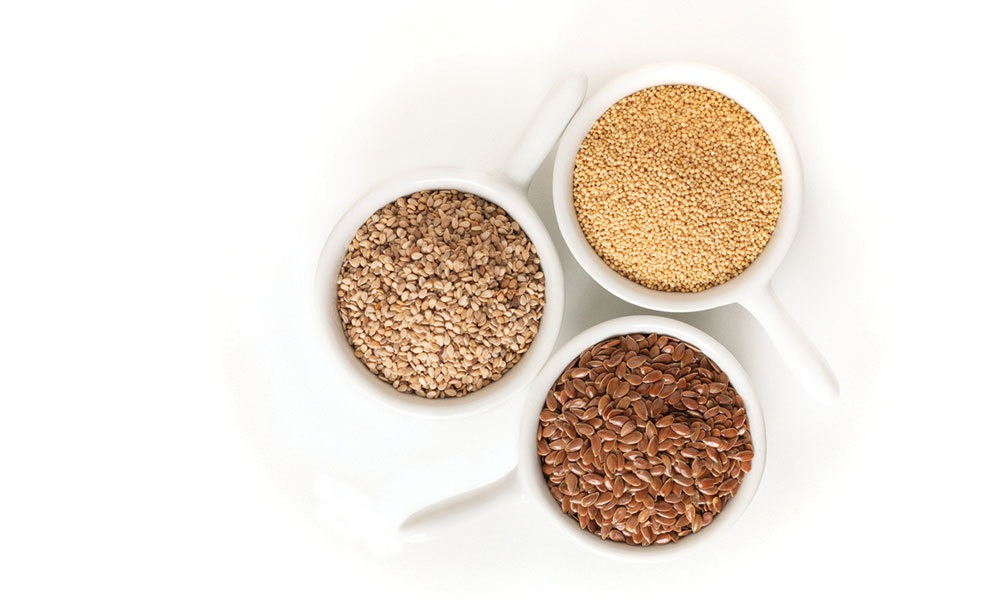
Celiac disease is an autoimmune disorder where the ingestion of gluten leads to damage in the small intestine. Gluten is a protein found in wheat, barley, and rye, and it triggers an immune response in susceptible individuals that causes inflammation and damages the intestinal lining. This damage impairs the body's ability to absorb nutrients and can lead to various symptoms and health complications.
Understanding Gluten and Its Effects on Celiac Disease
Gluten is the main dietary trigger for celiac disease. When people with celiac disease consume gluten, their immune system reacts by attacking the small intestine, damaging the villi, the tiny finger-like projections lining the intestine that promote nutrient absorption. Over time, this damage prevents the absorption of nutrients from food, which can cause a host of health issues, including anemia, delayed growth, and osteoporosis.
Symptoms of Celiac Disease
Celiac disease can cause a wide range of symptoms, varying greatly in severity. Common symptoms include:
- Diarrhea or constipation
- Abdominal pain
- Bloating and gas
- Fatigue
- Nausea and vomiting
- Weight loss
- Anemia
- Skin rash (dermatitis herpetiformis)
- Mouth ulcers
- Joint pain
In children, celiac disease can also affect growth and development, potentially leading to delayed puberty and dental enamel defects.
Treatment of Celiac Disease
The only effective treatment for celiac disease is a strict, lifelong gluten-free diet. Here’s what this involves:
Strict Adherence to a Gluten-Free Diet
- Avoid All Gluten Sources: This includes wheat, barley, rye, and derivatives such as malt. Gluten can be found in many types of foods, medications, and non-food products (like lip balms and toothpaste).
- Read Labels Carefully: Many processed foods contain gluten, so it's important to read labels carefully. Foods certified as "gluten-free" are safe for consumption.
- Beware of Cross-Contamination: Even small amounts of gluten can cause symptoms and damage in people with celiac disease. Kitchen tools and surfaces must be kept gluten-free to avoid cross-contamination.
Monitoring and Managing Health After Diagnosis
After receiving a diagnosis of celiac disease, regular follow-up visits with a healthcare provider are crucial to monitor the healing of the intestines and to check for potential nutritional deficiencies. These visits often involve blood tests to check for the presence of antibodies that would indicate exposure to gluten. Additionally, healthcare providers may recommend meeting with a dietitian who specializes in gluten-free diets to help manage and plan meals. Staying informed about the disease, adhering to a gluten-free diet, and attending regular check-ups can help individuals with celiac disease lead a healthy and symptom-free life.
Living With Celiac Disease: Strategies for Daily Management
Living with celiac disease requires a comprehensive approach to diet and lifestyle that goes beyond simply avoiding gluten. This involves educating oneself about the condition, learning to identify and select gluten-free products, and understanding how to prepare meals that are both nutritious and safe. Individuals must also learn to navigate social situations and dining out, advocating for their health needs while ensuring their diet remains strictly gluten-free. Support from family, friends, and celiac disease support groups can be invaluable, providing practical advice, emotional support, and shared experiences that can make managing the disease more manageable.
Nutritional Management
- Supplement Deficiencies: People with celiac disease often start treatment with nutritional deficiencies. Supplements, particularly for iron, calcium, vitamin D, and fiber, may be necessary under medical guidance.
- Consultation with a Dietitian: A registered dietitian can provide essential guidance on maintaining a balanced gluten-free diet and help identify hidden sources of gluten.
Regular Medical Follow-Up
- Follow-Up Tests: Regular follow-up with a healthcare provider is crucial. This often includes periodic blood tests to monitor antibody levels and assess dietary compliance and effectiveness.
- Monitoring for Complications: Continuous medical monitoring is necessary to check for potential complications like osteoporosis, other autoimmune disorders, and intestinal lymphoma.
Conclusion
For individuals with celiac disease, strict adherence to a gluten-free diet is essential to manage symptoms and prevent long-term health complications. Although following such a diet can be challenging, it is crucial for maintaining overall health. The support of healthcare providers and celiac disease support groups can provide the necessary tools and community to manage the disease effectively.
